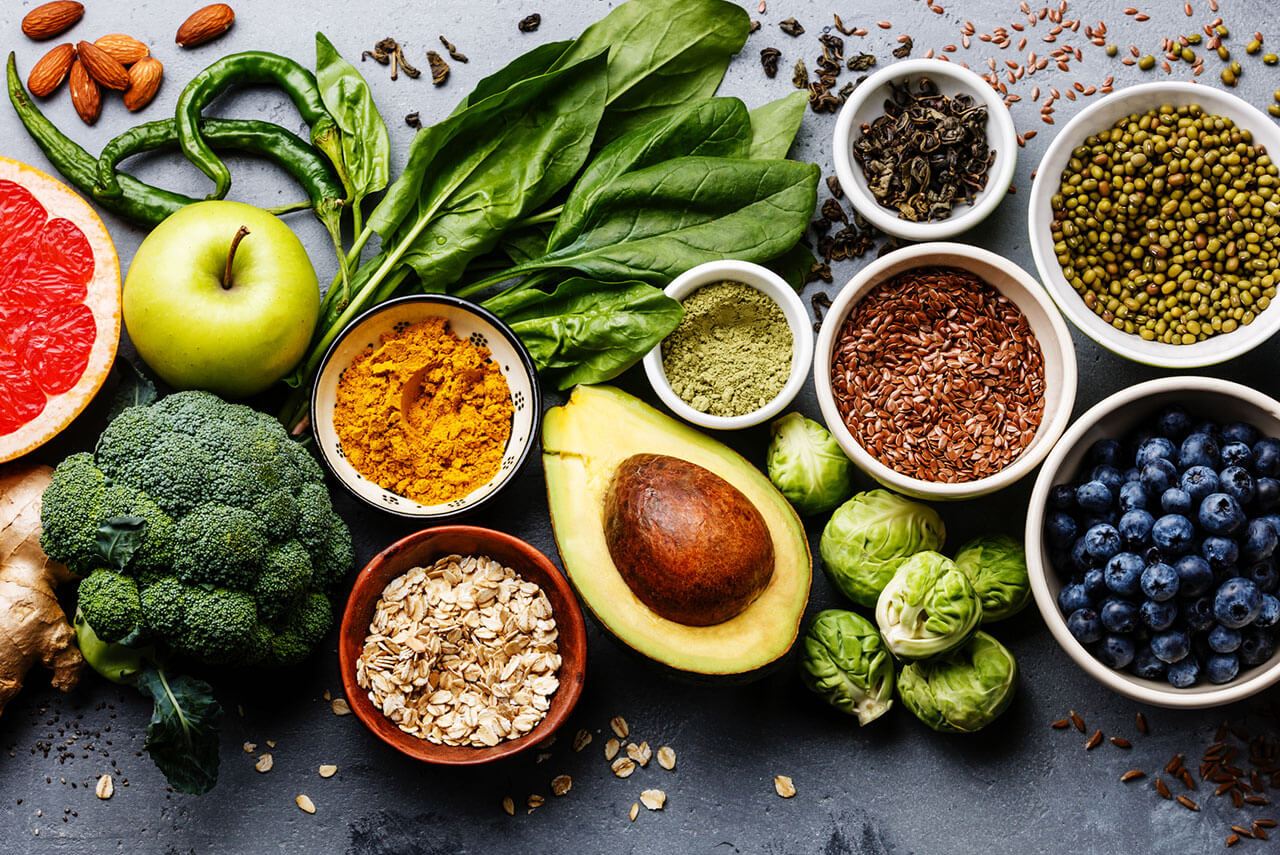
By definition, a vitamin is a compound necessary for our bodies to function that we must get through diet as it cannot be synthesized in our bodies. This list of vitamins only includes the compounds that fit this definition.
Vitamin A
Official name: Retinol
Function: Necessary for good vision, keeps skin and tissues healthy, and acts as an antioxidant.
Food Sources: Beef, eggs, shrimp, dairy.
Vitamin B1
Official name: Thiamin
Function: Assists the body in converting food into energy, helps keep skin, hair, and nails healthy, and is vital for nerve function.
Food Sources: Pork, brown rice, watermelon.
Vitamin B2
Official name: Riboflavin
Function: Helps the body convert food into energy and helps keep hair, blood, the brain, and skin healthy.
Food Sources: Milk, eggs, meat, leafy greens.
Vitamin B3
Official name: Niacin
Function: Helps the body convert food into energy and helps keep hair, blood, the brain, and skin healthy.
Food sources: Meat, poultry, fish, potatoes.
Vitamin B5
Official name: Pantothenic acid
Function: Helps the body convert food into energy and also helps make steroid hormones, hemoglobin, and lipids.
Food sources: Chicken, eggs, whole grains.
Vitamin B6
Official name: Pyridoxine
Function: Helps produce red blood cells, influence cognitive function and the immune system, and aids in decreasing homocysteine levels.
Food sources: Meat, poultry, fish, legumes.
Vitamin B7
Official name: Biotin
Function: Helps turn food into energy, utilize glucose, break down certain fatty acids, and promote healthy hair and bones.
Food sources: Whole grains, fish, egg yolks.
Vitamin B9
Official name: Folate
Function: Essential for the creation of new cells, helps prevent birth defects when consumed early on in pregnancy, and can decrease homocysteine levels in the body.
Food sources: Fortified grains, asparagus, spinach.
Vitamin B12
Official name: Cobalamin
Function: Supports healthy nerve cells and helps make DNA, blood cells, and new cells.
Food sources: Meat, poultry, fish, milk.
Choline (not technically a vitamin, but it's a close friend of the B Vitamins)
Function: Supports brain and nerve activities and helps metabolize and transport fats.
Food sources: Milk, eggs, salmon.
Vitamin C
Official name: Ascorbic acid
Function: Acts as an antioxidant, helps make collagen, and supports the immune system.
Food sources: Citrus fruits, peppers, broccoli.
Vitamin D
Official name: Calciferol
Function: Plays a role in maintaining normal blood levels of phosphorus and calcium to support strong bones.
Food sources: Fortified milk, fortified cereal, fatty fish.
Vitamin E
Official name: Alpha-Tocopherol
Function: Acts as an antioxidant to help protect the body against free radicals.
Food sources: Vegetable oils, leafy greens, whole grains.
Vitamin K
Official name: Phylloquinone
Function: Supports healthy blood clotting function.
Food sources: Cabbage, eggs, milk, leafy greens.
This list of vitamins is meant to help you understand which nutrients you must get through diet as your body cannot produce them. As you can see, they are easy to get from food, but you can always supplement. Our line of highly absorbable Lypo-Spheric® supplements include Vitamin C and the Vitamin B Complex Plus.

